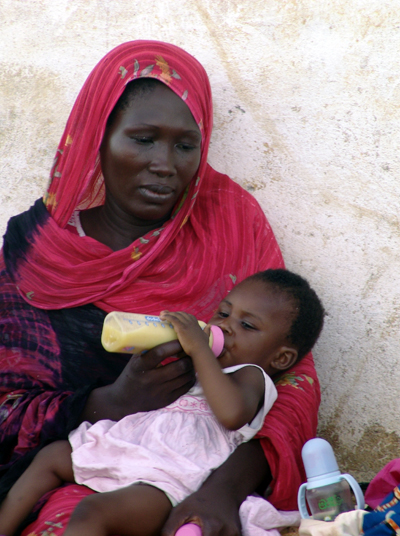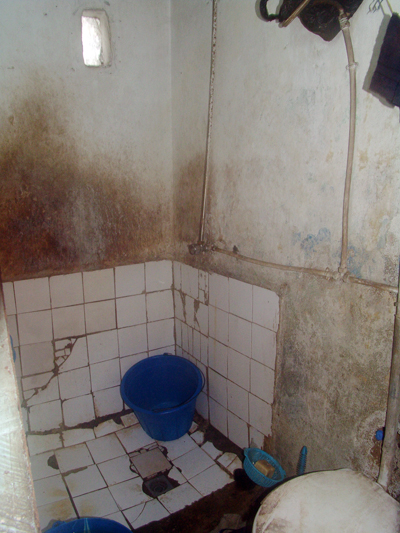Editor’s Note
Revelstoke girl Clara Suchy is a volunteer with the Homes With Hope for Refugees campaign launched on March 30 by the Refugees Without Borders Association. Its main goal is to help refugees in Douala, Cameroon, integrate themselves into their new lives and homes. They plan to give 100 families enough materials and income to support them while they jump-start new micro-businesses. This means giving them the knowledge they need to start and sustain a business while providing them with enough support to survive while doing so.
By Clara Suchy
It’s been raining for the last 12 hours, and not your average drizzle, it’s the African wet season downpour. I get out of the taxi, and wait for Yvette to come get me. While I wait, I look around, noticing no extreme differences from where I’ve been so far, here in Douala. There are fruit stands here and there with ladies sitting, waiting for someone to purchase something; there are men sitting at the snack bar across the street drinking beer, calling ‘la Blanche’ at me. I see Yvette across the street and I walk to greet her, she’s wearing a vibrant orange traditional dress. When we arrive at her home the notion of ‘it’s no different here than anywhere else in Douala’ disappears immediately. Through the narrow front door way, covered only by a sheet, she leads me into one of the two rooms that the house consists of. The room is about 16 m2 big, there’s a refrigerator in the corner, next to a shelf with a fan on it. Her sick mother is lying on the floor, under the only window, on nothing but a single blanket. Yvette’s younger sister rises from her spot on the floor she’s occupying next to her mother to greet me. Despite the fact that they are all sitting on the floor, they offer me their only two chairs, one for my backpack, one for me. I sit and they begin to tell me their story, taking breaks to find documents to show me, to let tears fall, to wait for me to scribble everything down.
”We fled from Moundou, where we are from in Chad, me, my mother, my younger sister, my younger brother and his daughter. His wife got killed in the war before we left.” This is how our conversation starts. She begins to tell me how they’ve ended up here, in Douala. ”It was an evening like this, we were in the house. It was February 2008, around 18h. The night had already started to fall when the rebellion came into our home, we don’t know who they were, or which army they belonged to. They started speaking Arabic, so no one other than my father could communicate with them. They were yelling, saying they were going to kill us and started kicking and hitting my dad. We were young, we didn’t know what to do other than cry and scream. They took my dad and the my two eldest siblings and we never saw them again.” Two days later Yvette and her family fled by foot until they arrived along the western border of Chad and Cameroon. After crossing the border, they were escorted by government officials to Douala and have been here ever since.
”It started in Garoua, depression hit her and she began to have mental break-downs. She had just fled her home, without her husband or two eldest children, she felt she had no reason to live anymore.”
Yvette’s mother is 64 years old, lying paralyzed on the floor, only able to lift her left arm slightly to give signals to her daughters. Yvette’s younger sister, Nora, helps her mother shift her right arm, after her mother moans and motions to her that she’s uncomfortable. They have to carry her every time she has to go to the bathroom, or be washed. She barley eats, and does nothing but lie on the floor all day. ”She has started talking to herself, having breakdowns and crying fits at night. We try to console her, but there’s not a lot we can do.” While talking to them, Yvette’s mother begins crying multiple times, mumbling words that I can’t understand. Her daughters comfort her, fighting back their own tears.
When they arrived here in 2008, they had lost all of their identification through the cunfusion of hectically leaving their country in a state of chaos. When they tried to find work in Douala, no one would hire them because of their lack of local identification. ”We are Chadian. ‘You have to go home’ they say, ‘we don’t want foreigners here.”’ Both Yvette and Nora have their high school diplomas, and had jobs as secretaries back in Chad, but have had no luck finding work here. Since they’ve been here, they have been living off of the little jobs that the only man in the family can find, these could be anything from unloading transport trucks to little construction jobs. With this revenue they manage to just barely get by.
Yvette and her family will be one of the families benefiting from Homes With Hope for Refugees. If you would like to get involved, or find out more about this campaign or the association that is backing it, please feel free to check the indiegogo.com crowd-funding site. The campaign can be found under the name Homes With Hope for Refugees.
Clara Suchy was raised and educated in Revelstoke and has recently decided to see what else there is in the world. She has been volunteering with an NGO called Refugees Without Borders. Clara has been overseas in Cameroon for the last six weeks and will be staying for 6 more. “During my stay here I have been investigating the living standards of urban refugees in Douala, gathering data to launch realistic aid projects that will give the people on the recieving end exactly what they need,” she said.
Here are three photos of the people and conditions that Clara hopes to affect:






